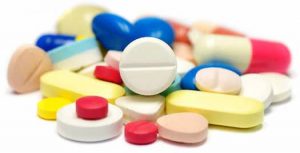Safety Tips
- Take your medication only as directed.
- Carefully note the time a medication was administered and consider writing it down.
- Do not cut pills in half or crush them to make them easier to swallow – unless directed by your OMS. This can change the way the medication is released into your system and have serious consequences.
- Never share your medication with someone else, as this is illegal.
- Do not take more than prescribed – even if pain relief is less than desirable – as this could result in side effects (including unintended overdose), especially when you are new to a medication. If less-than-adequate pain relief is obtained with the prescribed medication, contact your prescribing doctor.
- Store medication in a safe place only you can access:
- In a locked drawer
- On a high shelf
- In a lock box or home safe
- Keep all medicines out of reach of children and pets.
- Keep medications in their original packaging until you are ready to take them.
- If you experience any adverse effects, get emergency help. Examples include:
- Slow heartbeat
- Trouble breathing or slow, shallow breathing
- Severe sleepiness
- Cold, clammy skin
- Faintness
- Dizziness
- Rashes
- Confused thinking
- Trouble walking or talking normally
- Seizure
- Hallucinations
- Unusual snoring
Parents and guardians should administer medication to minors to ensure safety and avoid misuse. Remember, medications are safe and effective when used as directed and under the care of a professional.
 Proper Disposal Tips
Proper Disposal Tips
Careful use and storage of your medications keeps everyone safe as does thoughtful and proper disposal of unused medicines.
Medicine Take-back Programs
Medicine “take-back” programs are a good way to dispose of expired, unwanted or unused medicines and reduce the chance someone else might take the medication:
- Visit AAOMS.org or the Drug Enforcement Administration’s website for information about national Prescription Drug Take Back Day events.
- Contact your trash and recycling service to see if there is a medicine take-back program in your community. Learn about any special rules regarding which medicines can be taken back.
- Ask your pharmacist about medicine disposal programs in your area.
Disposal in Household Trash
If no medicine take-back program is available in your area, follow these simple steps to dispose of most medicines in the household trash:
- Mix medicines (do NOT crush tablets or capsules) with an unpalatable substance, such as kitty litter or used coffee grounds.
- Place the mixture in a container, such as a sealed plastic bag.
- Place the container in your household trash.
- Peel off or scratch out all information on the prescription label to make it unreadable before disposing of your empty pill bottle or other empty medicine packaging.
Article Courtesy of AAOMS, https://myoms.org/
All procedures performed at Pottstown Oral Surgery can be done under general or local anesthesia. Click here to learn more about us.